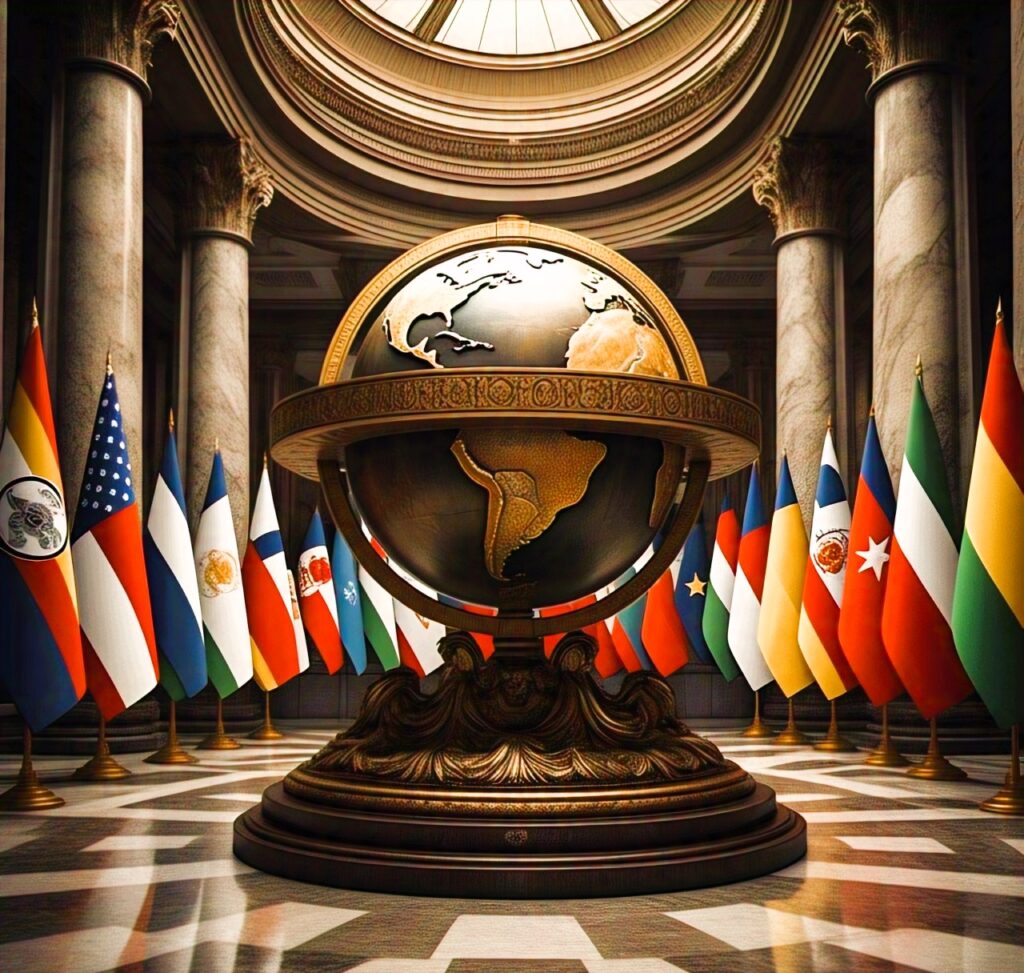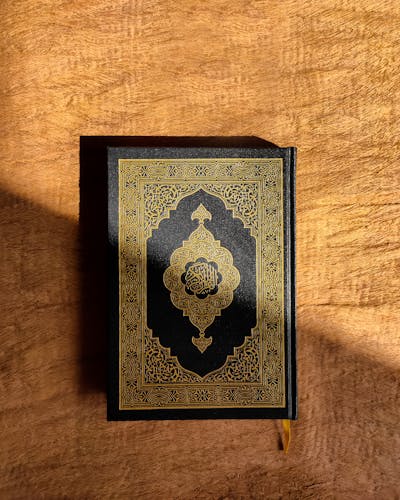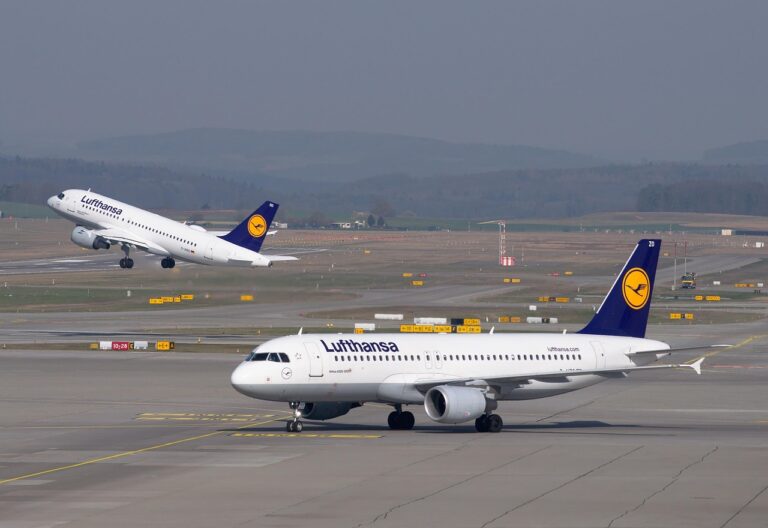2025: Muslim Nations Facing Ideological and Material Subjugation
The supremacy of nations or civilisations often stems from their ideological superiority or material advancement. Historically, ideologically superior nations dominate weaker nations’ thoughts, values, and beliefs. Similarly, materially superior nations influence the ideologies and cultures of materially inferior ones. While ideological and material ascendancies are not necessarily linked, an ideologically superior nation often flourishes materially. The decline of a nation invites dominance from superior nations, leading to subjugation.

During this period, artists, engineers, scholars, poets, philosophers, geographers, and traders in the Islamic world contributed to agriculture, the arts, economics, industry, law, literature, navigation, philosophy, sciences, sociology, and technology, both by preserving earlier traditions and by adding inventions and innovations of their own. Also at that time, the Muslim world became a major intellectual centre for science, philosophy, medicine, and education. In Baghdad, they established the “House of Wisdom“, where scholars, both Muslim and non-Muslim, sought to gather and translate the world’s knowledge into Arabic in the Translation Movement. https://islamichistory.org/islamic-golden-age/
An apt example of this phenomenon is the fall of the Islamic Golden Age and the subsequent European Renaissance. During the Islamic Golden Age (8th to 13th century), the Muslim world excelled ideologically and materially in science, medicine, and philosophy, significantly influencing other civilisations. However, the decline of the Abbasid Caliphate, coupled with internal disunity, weakened this dominance. In contrast, during its Renaissance, Europe assimilated these ideologies, using them as a foundation for cultural and material advancement. The adoption of reason and scientific inquiry and the development of technology and exploration fueled Europe’s rise, marking a shift in global supremacy. This underscores how the decline of one civilisation can pave the way for another’s ascent.
Intellectual Superiority and Its Decline
Intellectual superiority is built on logical thinking, reasoning, and research. Nations that abandon these principles deteriorate both intellectually and materially. Unfortunately, many Muslim nations today face ideological and material subjugation. Despite political independence, they remain culturally and ideologically influenced by foreign values. Their education systems, markets, and even homes reflect this disillusionment, as they often evaluate their religion and culture against Western standards.
The colonial rule in the Indian subcontinent serves as an illustrative example. Despite its rich intellectual and cultural heritage, the region succumbed to significant ideological and material subjugation under British rule. Western education and administrative systems were imposed, fostering a sense of inferiority among locals. This reshaping of cultural and intellectual landscapes continues to influence aspects of governance and education even today.
The Complexity of Subjugation
Historically, Muslim nations thrived when they embraced logical thinking, reasoning, and research. Over time, however, complacency set in, as they rested on the achievements of their ancestors, creating an intellectual void. This stagnation allowed other nations to advance, leaving Muslims behind. The decline of the Ottoman Empire exemplifies this pattern. Once a beacon of progress, the empire failed to embrace modernization and industrial advancements, which led to its eventual ideological and material subjugation.
Islam Against Western Domination
After centuries of intellectual and material decline, Muslim nations faced a stronger West. While many succumbed to Western ideologies, Islam stood resilient despite weaknesses in Muslim societies. Algeria under French colonization illustrates this dynamic. The imposition of Western norms and the suppression of Islamic institutions created cultural and ideological tensions. Yet, Islam served as a unifying force during the Algerian War of Independence (1954–1962), highlighting the enduring strength of Islamic identity in the face of subjugation.
The Rise of Western Civilisation
Western civilisation emerged from a conflict between logic/philosophy and religion, giving rise to speculative theories like Rationalism and Materialism. The Renaissance period marked a turning point, as movements opposing the church gained momentum despite brutal resistance. Galileo Galilei’s trial in 1633 exemplifies this clash, where reason and empirical evidence eventually triumphed over religious dogma. This victory of rationalism laid the foundations for Western civilisation’s material and intellectual ascendancy.
Philosophical Shifts in the West
The 17th and 18th centuries saw thinkers like Descartes, Locke, Newton, Voltaire, and Rousseau shape Western intellectual traditions. By exploring the physical world, often sidelining divine concepts, they laid the groundwork for atheism and naturalism.
The 19th century furthered these ideas with materialism and theories like Darwin’s Evolution, promoting a purposeless view of life, a philosophy contrary to Islamic teachings.
Darwin’s theory challenged the idea that God made all the animals and plants that live on Earth, which contradicted the commonly held Christian views of his era. He did not publish his scientific work and ideas until 28 years after his voyage.
Finally, as a result of Darwin’s world expedition and observations, which were backed by many years of experimentation, his discussions with like-minded scientists and his developing knowledge of geology and fossils, he proposed the theory of evolution.
Darwin proposed that:
- Individual organisms within a particular species show a wide range of variation for a characteristic
- Individuals with characteristics most suited to the environment are more likely to survive and to breed successfully
- The characteristics that have enabled these individuals to survive are then passed on to the next generation
This theory is called natural selection.https://www.bbc.co.uk/bitesize/guides/zsqydxs/revision/1
The Role of Islam
The Quran stands as a timeless beacon, offering a profound framework for faith, thought, and discovery. It intertwines spirituality with rationality, urging humanity to seek knowledge, practice wisdom, and build a society grounded in justice and harmony. The Quran rejects irrationalism, intolerance, and obscurantism, emphasising the value of reflection (Tadabbur), reason (Ta’qqal), and deliberation (Tafakkar) in all aspects of life.
In an age rife with uncertainty and moral challenges, the Quran serves as a guide not just for Muslims but for all of humanity, presenting a path towards peace and fulfilment. It invites readers to explore its scientific and philosophical insights, offering solutions to modern dilemmas while staying rooted in eternal truths. Islamic teachings propose a balanced life where spirituality complements material pursuits, providing a roadmap to rebuild societies based on values

of compassion, equity, and divine wisdom.
The number of Muslims around the world
Today, Tuesday, March 18, 2025, it is estimated that 2,042,687,886 people around the world identify themselves as Muslims, which represents over 25% of the world’s total population of 8,170,751,546.
In terms of the number of adherents, Islam is the second-largest religion in the world. The religion of Islam is part of the official religious system in 26 countries in Asia, Africa, the Middle East, and sub-Saharan Africa. The growth of Islam is faster than that of any other religion worldwide.
The global Muslim population is a diverse and dynamic group that is spread across the world. As of 2025, it is estimated that there are over 2.04 billion Muslims in the world, making Islam the second-largest religion after Christianity.
Muslims are found in every region of the world, with the largest concentration of Muslims living in the Asia-Pacific region. This includes countries like Indonesia, Pakistan, India, and Bangladesh, which have some of the largest Muslim populations in the world.
In addition to the Asia-Pacific region, there are also significant Muslim populations in the Middle East and North Africa, as well as in sub-Saharan Africa. In Europe and North America, there are also growing Muslim communities, particularly in urban areas.
The global Muslim population is a diverse and vibrant group that plays a significant role in the world today. Despite the challenges they face, Muslims continue to make significant contributions to their communities and the world at large.
Countries with the largest number of Muslims
| Rank | Country | Muslims | Total population |
|---|---|---|---|
| 1 | Indonesia | 244,790,602 | 281,368,507 |
| 2 | Pakistan | 239,858,929 | 248,558,476 |
| 3 | India | 223,434,587 | 1,450,873,943 |
| 4 | Bangladesh | 159,739,083 | 175,924,100 |
| 5 | NIGERIA | 119,050,669 | 232,975,869 |
| 6 | Egypt | 110,313,050 | 115,753,463 |
| 7 | Iran | 89,337,911 | 90,240,315 |
| 8 | Turkey | 84,838,523 | 86,569,921 |
| 9 | ETHIOPIA | 47,384,564 | 131,990,429 |
| 10 | Iraq | 46,775,014 | 47,247,489 |
| 11 | Algeria | 45,756,648 | 46,738,150 |
| 12 | Sudan | 45,572,590 | 50,245,414 |
| 13 | Afghanistan | 43,737,885 | 44,179,682 |
| 14 | Morocco | 38,083,355 | 38,468,036 |
| 15 | Yemen | 35,414,452 | 35,772,174 |
| 16 | Saudi Arabia | 35,078,528 | 37,840,915 |
| 17 | Uzbekistan | 34,975,901 | 36,020,496 |
| 18 | China | 28,493,229 | 1,424,661,456 |
| 19 | NIGER | 28,500,313 | 28,993,197 |
| 20 | TANZANIA | 24,154,541 | 70,834,431 |
| 21 | Syria | 23,309,351 | 25,117,835 |
| 22 | MALI | 23,212,576 | 24,537,607 |
| 23 | Malaysia | 23,085,512 | 34,925,132 |
| 24 | SENEGAL | 17,919,346 | 18,550,048 |
| 25 | Russia | 16,373,266 | 143,625,144 |
Sources
- The 2022 Revision of World Population Prospects, Department of Economic and Social Affairs, Population Division.
- Data Hub World Religion Projections
- WikipidiA Islam by country (Global Muslims percentage)
- Nations Geo
Now more than ever, there is a need for individuals to reconnect with the Quran, not only as a religious text but as a universal guide that addresses the complexities of life. Works like The Bible, The Quran, and Science by Dr Maurice Bucaille and The Quran and Modern Science by Dr Zakir Naik can bridge the gap between ancient wisdom and contemporary thought.
By embracing the Quran’s teachings and understanding the Islamic way of life, humanity can rediscover its purpose and foster a world of enduring peace, mutual respect, and unity. The Quran extends an invitation to all: to reflect, learn, and rise above the chaos of modernity by aligning life with divine guidance and wisdom.
Welcome Ramzan 2025:Embracing the Spirit of Ramzan: Reflection, Compassion, and Unity

